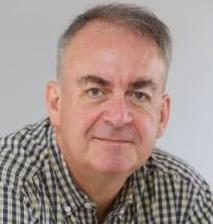I often get asked by the partners of PTSD sufferers: “What can I do to help my loved one?”
So, in no particular order, here is a list of things you can do to help your partner, that can be worked through with a psychologist or therapist.
10 Tips for Partners of PTSD Sufferers
- Provide social support by spending time together – but don’t pressure your loved one into talking about anything they do not wish to talk about. Do “normal” things with them (normal in the sense that it is non-trauma related). Let your partner take the lead, as they know what gives them comfort.
- Manage your own stress.
- Be patient.
- Most importantly educate yourself about PTSD; this will help understand what your partner is going through (there are a number of helpful articles about PTSD, right here on this website).
- Accept and expect mixed feelings and reactions.
- Be a good listener.
- Rebuild trust and safety – show commitment to the relationship, create routines, and talk about the future.
- Anticipate and manage triggers.
- Learn how to deal with volatility and anger.
- It is important for partners of PTSD sufferers to remember to take care of themselves. Look after your physical needs, make time for yourself, have your own support, set boundaries with your partner. Just like the safety instructions on every plane flight, “putting on your own oxygen mask first” (ie taking care of yourself first) means that you will be in the best position to help your loved one.
Dealing with a Flashback
It is common for people suffering from PTSD to experience flashbacks or panic attacks. You can support them by:
- Simply telling your partner it is a flashback; and that the trauma is not happening again.
- Reminding them of their current surroundings, and reassuring them that they are safe.
- Encouraging them to take deep slow breaths to decrease hyperventilation.
- Making sure not to startle them.
- Asking before you touch them.
As a clinical psychologist and couples counsellor, I can provide valuable support for the partners of PTSD sufferers, so please feel free to book an appointment.
 Author: Dr David Wells, B Psych (Hons), Dip Prof Couns, D Psych (Clin Geropsychology).
Author: Dr David Wells, B Psych (Hons), Dip Prof Couns, D Psych (Clin Geropsychology).
David is a Clinical Psychologist, with a keen interest in couples counselling. He strives to provide a safe environment for his clients to explore their issues and, with assistance, develop new techniques which will help them change their unproductive behaviours. The aim is to have a happier life that assists people to reach their relationship, personal and life goals.
Dr David Wells is currently on extended leave. If you would like to book with an alternative clinician with similar expertise, you can call Vision Psychology Brisbane on (07) 3088 5422.